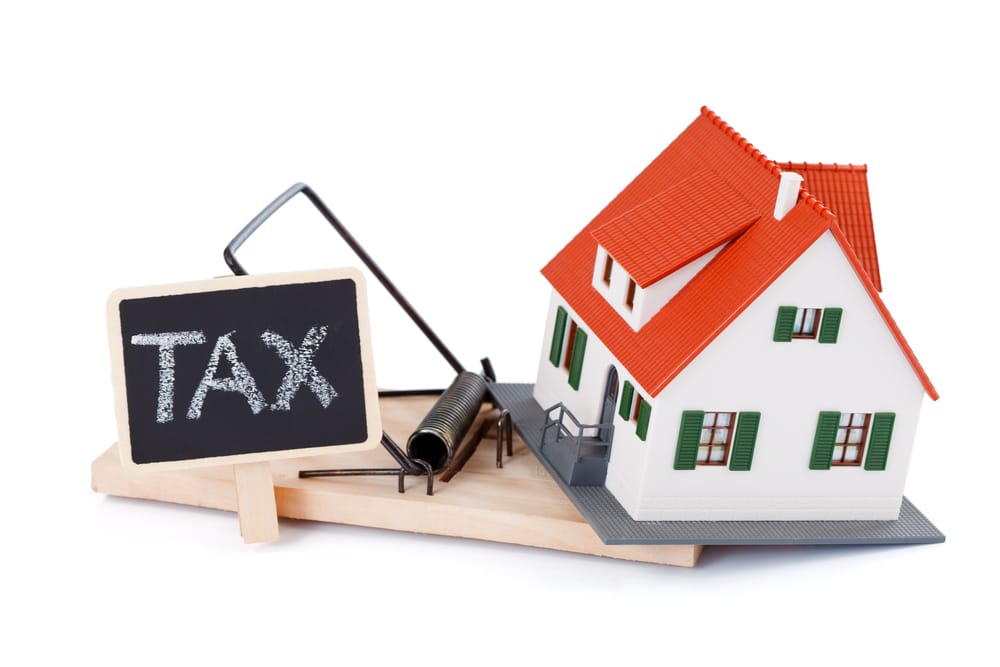On June 9, 2022, the federal government enacted the Underused Housing Tax (UHT) Act which applies to all Canadian residential properties owned on or after December 31, 2022.
In most instances, the tax applies to non-Canadian residential property owners who do not reside in Canada. However, it can also apply to affected owners such as a Canadian citizen or permanent resident owner in some situations.

What is the Underused Housing Tax (UHT)?
The Underused Housing Tax (UHT) is a 1% tax imposed on the value of residential property in Canada that is considered to be either underused or vacant. This tax is applied annually on residential properties owned on December 31 of each year. UHT is meant to target properties owned by non-residents and non-Canadians; however, this rule also extends to private Canadian corporations (such as CCPCs) and trustees of a trust. The deadline for the first UHT filing and tax payment for affected owners is May 1, 2023, because April 30 is a Sunday.
Who Needs to File a Underused Housing Tax Return?
Did you legally own a residential property in Canada as of December 31? If you were the registered title holder, either alone or jointly, you are required to file an Underused Housing Tax (UHT) annual return unless you are a Canadian citizen or permanent resident under the Immigration and Refugee Protection Act. In this case, you are considered an excluded owner and are not required to file an annual return for UHT.
Corporations incorporated under Canadian laws and listed on a Canadian stock exchange are also considered excluded owners and are not required to file a UHT return. In other words, private corporations (such as CCPCs) that own residential properties are required to file an annual return.
Other types of excluded owners include cooperative housing corporations, charities, municipalities, Indigenous governing bodies, the government of a province, publicly-traded trusts (e.g. real estate investment trust and mutual fund trust), and other entities such as universities, public schools, colleges and hospitals.
If you are not an excluded owner, you are considered an affected owner and must file a UHT return.
Are You Required to Pay the Underused Housing Tax?
If you are required to file a UHT return, you must pay the tax on UHT unless you meet one of the four categories of exemptions below.
Exemption #1: Type of Owner of the Residential Property
The following types of owners are not required to pay tax when filing the UHT annual return:
- Specified Canadian corporation where foreign owners do not control or own, directly or directly, at least 10% of the corporation based on voting rights or share value
- Specified Canadian partnership and each and every member is an excluded owner or a specified Canadian corporation
- A trust in Canada where every single beneficiary that has a vested interest in the residential property is an excluded owner or a specified Canadian corporation
- A new property owner who acquired the residential property in the year
- A property owner who died in the year or a previous year
- A personal representative of a person who passes away and is not the property owner
Exemption #2: Availability of the Residential Property
You are not required to pay tax when filing the UHT annual return if the availability of the property falls under one of the following conditions:
- The residential property was undergoing construction and was not substantially finished before April of the calendar year
- Construction of the residential property was substantially finished between January 1st and March 31st of the year, the property was listed for sale to the public, and no one ever occupied it as their home during the calendar year
- The residential property was unliveable for 120 continuous days or more in the year as a result of ongoing major renovations
- The residential property is unliveable for 60 consecutive days or more in the year because of hazardous conditions or a natural disaster
Exemption #3: Occupant of the Residential Property
The tax payable on UHT is exempt if the property is occupied under the following scenarios:
- It is used as a primary home for the owner, spouse or common-law partner, parent, or their children attending a post-secondary education
- An unrelated person who lives in the residential property under a written agreement (e.g. rental agreement) for at least a month (i.e. qualifying occupancy period) for a minimum total of at least 180 days
- A related person who lives in the residential property under a written contract and pays minimum fair rent at 5% of the property value for at least a month (qualifying occupancy period) for a minimum total of at least 180 days
Exemption #4: Location and Use of the Residential Property
The tax exemption on UHT also applies where a vacation property is situated in an eligible area of Canada. This includes certain areas considered rural, and it must be utilized by the property owner or the spouse or common-law partner for a minimum of 28 days in the year.
How much is the Underused Housing Tax?
If you are required to file a UHT annual return and are not exempt from tax under one of the four categories of exemptions, you must pay UHT.
The UHT is 1% of the property’s taxable value based on the higher of: amount assessed for property tax purposes and the most comparable recent sale price. The UHT is then prorated by your percentage of ownership of the property. You can also make an election to use the property’s fair market value as appraised during the calendar year and up to April 30 of the following year. The Canada Revenue Agency requires an appraisal with specific parameters to use this fair market value election.
When Do You Need to File and Pay Underused Housing Tax?
UHT return must be filed by an affected owner and the tax must be paid by April 30 of the following year using Form UHT-2900. Note that a separate return is required for each affected owner of each property.
What are the Penalties for Failure to File the Underused Housing Tax Return?
Individual property owners who do not file the UHT return by the due date are charged a minimum penalty of $5,000, and corporations are charged a minimum penalty of $10,000. It is important to point out there is no limitation on the time the Canada Revenue Agency can assess the UHT tax owing, interest and penalties where the owner fails to file the tax return.
Conclusion
The Underused Housing Tax Act was implemented to target properties considered to be underused or vacant in order to stabilize the housing market in Canada. The regulations surrounding UHT are complex, and the 1% tax of the taxable value can be imposed on affected owners such as a Canadian citizen and a private corporation. If you have questions about UHT, our team can help identify ownership situations where affected owners are subject to the UHT rules and ensure you understand potential filing requirements and tax implications. UHT is a separate compliance requirement in addition to the personal tax return and corporate tax return filings under the Income Tax Act.
